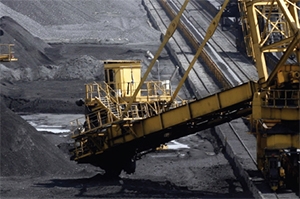Vinacomin in the clear over duties
 This is due to a new ruling by authorities based on a technical judgment regarding truck cabins.
This is due to a new ruling by authorities based on a technical judgment regarding truck cabins.
The dispute arose when state agencies, in their post customs clearance audit process, reviewed documents pertaining to auto component import shipments from September 13, 2007 to December 31, 2011 of V-Itasco, Itasco Construction and Itasco-CPM, under Vinacomin.
The audit found that several auto component sets of these companies had yet to meet breakdown level regulated in the Ministry of Science and Technology’s (MoST) Decision 05/2005/QD-BKHCN and a number of relevant Ministry of Finance (MoF) documents guiding classification of auto parts and components for tax calculation.
The components included medium and heavy trucks’ cabins and associated driver seats and subordinate seats.
During September 13, 2007 to December 31, 2011 the companies had filled in 59 import declarations and finalised import procedures for auto component sets with respective tax rates as levied on imported component sets.
Auditors ruled that medium and heavy trucks’ imported component sets should incur the tax duties like those applied to completely-built unit (CBU) import cars in respective relevant period, rather than the lower rates imposed on component sets as declared by these firms.
Tax authorities argued that the cabins must incur the tax rate as applied to imported CBU cars and relevant firms ought to pay additional tax amounts since the cabins were imported in whole form but not in parts for later assembly and electrostatic painting in Vietnam as required by the MoST’s Decision 05.
Vinacomin and its member firms were ordered to pay $7.5 million in tax arrears, a claim the company contested.
For its part, in a document stamped by Vinacomin’s general director Le Minh Chuan, the state miner said during 2007-2012 the group imported a total 1,345 component sets for KrAZ, Kamaz and Scania truck brands serving production. These parts had passed customs checks with import duties applicable to imported component sets.
Vinacomin argued it had basically followed regulations at the MoST’s Decision 05. In respect to cabins, since the trucks operating in mining site with tough terrain conditions, tropical climate and high humidity the imported cabins must be of top quality to sustain these tough conditions.
Vinacomin then could not import the cabins in parts for later assembly and electrostatic painting in Vietnam as required in Decision 05.
Vinacomin had proposed the MoST accept the breakdown level of its medium and heavy trucks’ imported component sets.
In October 2012, the inter-ministries of Science, Technology, Industry and Trade, after direct checks at Vinacomin’s production base, had agreed to Vinacomin’s proposal saying that due to current domestic production technology restrictions, imported cabins need to be in whole form with electrostatic painting handled abroad to ensure quality and technical specifications for medium and heavy trucks which operate in tough mining environment.
In mid January 2013, the MoF forwarded Dispatch 885/BTC-CST sourcing the government approval for Vinacomin to pay import duty for trucks’ imported components during 2007-2012 as those levied on component sets.
The proposal recently got the government’s thumbs-up.
What the stars mean:
★ Poor ★ ★ Promising ★★★ Good ★★★★ Very good ★★★★★ Exceptional
 Tag:
Tag:
Related Contents
Latest News
More News
- Site clearance work launched for Dung Quat refinery upgrade (February 04, 2026 | 18:06)
- Masan High-Tech Materials reports profit: a view from Nui Phao mine (February 04, 2026 | 16:13)
- Hermes joins Long Thanh cargo terminal development (February 04, 2026 | 15:59)
- SCG enhances production and distribution in Vietnam (February 04, 2026 | 08:00)
- UNIVACCO strengthens Asia expansion with Vietnam facility (February 03, 2026 | 08:00)
- Cai Mep Ha Port project wins approval with $1.95bn investment (February 02, 2026 | 16:17)
- Repositioning Vietnam in Asia’s manufacturing race (February 02, 2026 | 16:00)
- Manufacturing growth remains solid in early 2026 (February 02, 2026 | 15:28)
- Navigating venture capital trends across the continent (February 02, 2026 | 14:00)
- Motivations to achieve high growth (February 02, 2026 | 11:00)






















 Mobile Version
Mobile Version